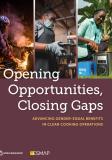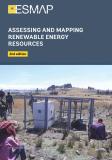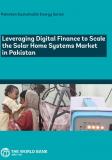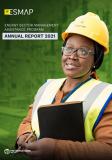Publications
Achieving global goals for access to energy and mitigation of climate change will require a quadrupling of present levels of solar photovoltaic (PV) generation in the developing world by 2025 to reach around 950 gigawatt (GW).
This represents an investment of more than US$500 billion in new solar PV generation alone. To reach this objective, large amounts of private funding will have to be unlocked to complement the limited public financing available. Yet most developing countries still lack a pipeline of bankable solar projects for consideration by the private sector. To develop one, countries must take a series of key steps to tackle critical risks perceived by the private sector while also minimizing risks for the public sector.
The World Bank, Energy Sector Management Assistance Program in partnership with, Agence Française de Développement (AFD), International Renewable Energy Agency (IRENA) and International Solar Alliance (ISA) developed the Solar Risk Mitigation Initiative (SRMI or “the Initiative”) to address these challenges. SRMI aims to support countries in developing sustainable solar programs that will attract private investments and so reduce reliance on public finances.
The report details each step to be taken to develop an effective program, highlighting links between each step and other critical matters that should be considered along the way to ensure an integrated approach. The guidelines also include a diagnostic tool that countries can use to benchmark their progress in fulfilling the conditions for a sustainable solar program.
The main conclusion of the pipeline assessment is that few countries have completed the preliminary work necessary to mount a sustainable solar program.
For more information on SRMI, read the brief: https://www.worldbank.org/en/topic/energy/brief/srmi



